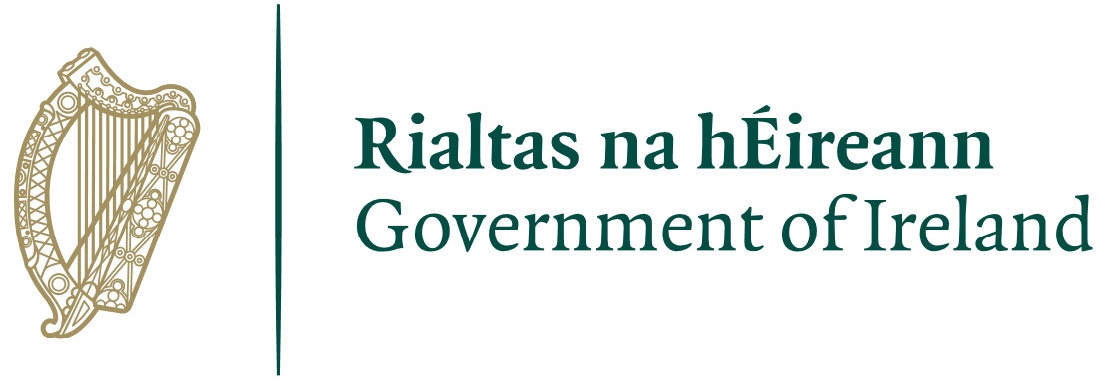It’s conference season again! That annual review and renewal ritual that all sectors participate- or indulge in. Be you a gas and oil prospector, a hairdresser, a vegan or a pacifist, chances are you will have an annual navel-gazing session. And although some like the teacher unions prefer spring- autumn is the time when it seems natural to many groups to get together with their peers and tackle those big questions that matter to us all.
NRN?
The National Rural Network (NRN) had their one this week. Didn’t you hear? No…. well, maybe that’s not really surprising. There was little new discussed or argued to interest the outside observer- even those in rural Ireland who should be interested. So the media coverage was scant. The NRN is in existence to service the networking and related needs of the stakeholders in the Rural Development Programme (RDP), that’s Pillar 2 of the Common Agriculture Policy (CAP). It’s a big pillar at €5.8 billion. The former Tipperary Institute (TI) has the contract to operate the NRN and organise the conference. Since September TI has been merged into Limerick Institute of Technology (LIT), but the Thurles campus still has the NRN brief. But neither TI nor LIT are the problem; the NRN’s brief and the sector’s organisation is!
All parties with a stake in the RDP from farming organisations, to Teagasc to the LEADER companies such as us at Kilkenny LEADER Partnership (KLP) were represented at the event in Athlone. So what did we discuss? Well, the theme of the conference was, “Building A Vibrant Rural Economy” and we had two morning plenary sessions, collectively titled, ‘Identifying future priorities’ and that involved looking at the newly unveiled CAP proposals for the 2013- ’20 period; a consideration of what the Food Harvest 2020 report could mean, and some research findings on the basic demographic challenges facing rural Ireland. There was a panel discussion in session 2 and… that was it really in terms of plenary session! There was a series of workshop on the ‘Vibrant Rural Economy’ theme- in which yours truly participated. Our one on the potential of walks and other trails was good and well attended- of course! I hear other workshops were worthwhile too; and some had fewer fans.
So- is LEADER doing anything….?
There was little directly timetabled to cover the issues concerning LEADER. No workshop of the food ban fiasco; no plenary discussion on the serious cuts (€100 million of €425 million) that is likely to emerge as a result of the EU Commission’s offer to allow Ireland and other ‘bailout’ states to draw down the full amount of the European co-funding of LEADER with less Irish money. No reference to the serious damage that heavy bureaucracy is having on the delivery of the programme. No serious discussion of the Commission’s initial proposal to effectively halve to 5% the size of LEADER. If it weren’t for some prompting from the floor – (sincere thanks Peter Young of the Farmers Journal for that intervention) and a resulting very brief discussion, a visitor would think that all that was bothering LEADER company representatives was whether to order the sea bass or beef for lunch.
Significantly there was no representative of LEADER speaking in either of the first two the plenary sessions- although Carmel Fox of Ballyhoura Development and Joe Potter of Westmeath LEADER Partnership were panel members. All the speakers were excellent, but with three academics, two Teagasc officials and only our old colleague in the trenches of LEADER Tommy Cooke of Meitheal na Gaoithe giving a typically shrewd and considered non-official (in every sense) view on the renewable energy sector; I suggest that top table was a bit unbalanced! One of the Teagasc speakers managed to deliver a well-researched presentation crossing the breath of the programme without mentioning the word LEADER once. It didn’t get mentioned too much by any of the official speakers really- but why would they? This in a conference supposed to be a co-production between LIT, Thurles, Teagasc, and the LEADER network. Although the billing on the conference literature omitted any mention of LEADER in that troika. In the first two sessions, there was nearly more discussion on Pillar 1 farming activities and policies than on the supposed focus of the day – Pillar two.
And no Minister attended either! Neither the Minister for Agriculture, Food & Fisheries, Simon Coveney nor the Minister for Environment, Community and Local Government, Phil Hogan could attend. So Pillar 2 of the Common Agriculture Policy, one of the biggest programmes bringing a massive €5,778 million in funding into Ireland in the 2007 to 2013 period cannot attract a Minister to give their view on what is right, wrong or indifferent about the programme! Of course the senior Ministers, and their Ministers of State are seriously very busy. But can you imagine the delegate and media ho-ha and brohura if the Minister for Education decided he or she was too busy to attend even one of the three (count ‘em) teacher union conferences each Easter? Let’s just say- it would be interesting.
So were the combined stakeholders in the RDP astonished or shocked by the absence? Well- not really! Minister Hogan was by all accounts anxious to have LEADER under his aegis, but seems less concerned at the progress of the programme than ensuring it is ‘aligned’ to the development workings of the local authorities. Minister Coveney has, spoken passionately about the potential of food, as a driver of national and rural development but never about the crucial role of LEADER companies in the vital small enterprise sector. So do we feel a bit neglected- even unloved? Well maybe a bit, there’s always plenty of competing agendas, petty jealousies and imagined slights in any sector meeting to keep life interesting, but to my mind the greater concern is the fact that lack of real policy focus around rural development as a whole.
Where are the Policies?
Where after 20 years are the academic papers on Rural Development in terms of the big issues that affect the quality of life and the future position of the rural economy? Where for example is the integrated rural transport policy paper – using international comparators and peer reviewed by international experts? Where are the sector’s rural broadband strategy proposals? The policy proposing how to optimise renewable energy for rural communities? I could go on and on….
On the positive side five LEADER companies have contracted Teagasc to do some primary research into the ‘Economic change in the Irish local economy’ – with a specific focus on rural development and LEADER. When completed it will plug a shocking gap in the primary information we all need to argue the cause of rural Ireland. The project’s existence gave cause to a dedicated workshop in the afternoon session. It is hoped it will be completed for next year’s conference. I genuinely look forward to that. But where are the other papers. Have the farming associations produced any strategic or even ‘blue-skies’ papers on the wider sector and just not on immediate ‘tactical’ issues that affect farming?
Rural Society – we need a model!
Here’s my concern I am sure that there needs to be an alternative model for society to the urban model. Nothing wrong and a lot right with working, living and socialising in the towns and cities of our state. But unless we expect everyone to live in a town – which is obviously neither feasible nor desirable- then we need an alternative rural model. And, to follow the logic-if we are to have this rural model, what informs it, other than opportunism and the loudest voices at the time of decision? So is there an institution to take the lead here in developing this alternative vision? Well. I’m sure Teagasc see it as being part of their role and it is- in part. But the opportunity that may have been lost is that of the aforementioned Tipperary Institute- formerly called Tipperary Rural Business Development Institute (TRBDI) at its foundation in 1996.
In truth TI never really grasped – or more likely was resourced to grasp the opportunity in the sector. Good research takes time and money and TRBDI/ TI was always battling to prove itself in a competitive academic environment. Small wonder that the emphasis was on the more prosaic areas. The ghost of Media Lab Europe hangs over all of us in the publicly funded sector. Despite the restrictions the Thurles and Clonmel campuses of TI has many really talented and driven people and I regret the potential dilution of that potential in the LIT merger. Our sincere best wishes to them as they enter a new environment. But maybe this can lead to greater resources and freedom for those that are interested to produce that research and policy drive. Maybe in 5 years’ time we will start to see the agendas of the annual conference such as NRN’s- assuming the network is still there, teeming with policy documents driving a sustainable model of rural living. Then the media might have a reason to report it proceedings and maybe we will get a minister to speak at it too!
Declan Rice

![23-27 LEADER Programme Logos-2040 logo Text PNG[29] 23-27 LEADER Programme](http://cklp.ie/wp-content/uploads/23-27-LEADER-Programme-Logos-2040-logo-Text-PNG29.png)




